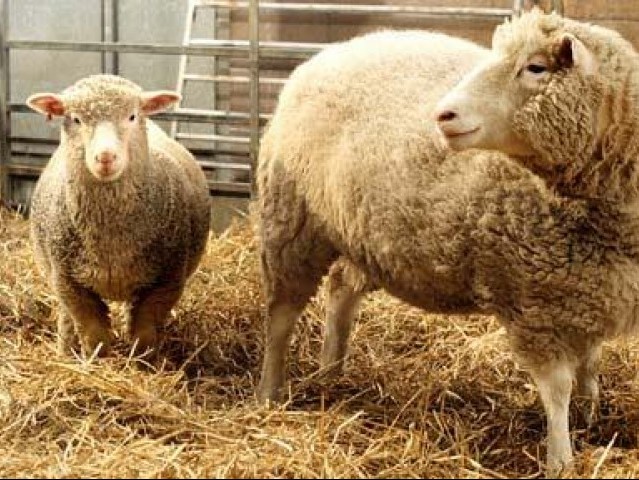
The European Commission is ready to ban animal cloning in the 28-nation bloc but MEPs said it had to go further to halt all imports and the use of cloned products to ease public concerns about food safety.
"Up to now, we have been able to import reproductive material from third countries. We are washing our hands letting others do the dirty work," said MEP Renate Sommer, who presented the recommendations in a report to the European Parliament in Strasbourg.
"We want to ban comprehensively. Not just the use of cloning techniques but the imports of reproductive material, clones and their descendants," Sommer said.
"I'd like to ask the European Commission to rethink this whole thing."
Lawmakers and the public are deeply suspicious Brussels could allow widespread use of animal cloning and genetically modified foods under the terms of a massive free trade agreement being negotiated with the United States.
Read: Stem cell research and ethical dilemmas: How far have we come?
EU leaders insist health standards will not suffer but Parliament remains sceptical about the merits of what is known as the Transatlantic Trade and Investment Partnership (TTIP).
Giula Moi, who with Sommer brought the recommendations forward, said: "We need to take into account the impact on animal health but also on human health."
"This report sends the message to our trade partners that we are not willing to put our own health, our families' health, and future generations' health at stake using products of dubious quality of this nature," Moi said.
"We want to be sure that we don't go down a path from which there is no return," she added in a parliamentary statement.
Read: Human cloning is illegal: Council of Islamic Ideology
Up until now, cloned farm animals -- which are hugely expensive to develop -- are not used for food but for breeding purposes, with their embryos and semen used widely in the United States, Argentina, Brazil and Uruguay.
The Commission's current proposal bans farm animal cloning but would allow the sale of meat and milk produced by their descendants.
The MEP's report was adopted by 529 votes to 120, with 57 abstentions, and will now form the basis for what are likely to be difficult negotiations with the Commission, the EU's executive arm.
EU Food and Health Safety Commissioner Vytenis Andriukatitis said the restrictions in the report were not "justified," arguing that descendants of cloned animals showed no health problems while a complete ban might be difficult to sustain in law.



1731655243-0/BeFunky-collage-(61)1731655243-0-165x106.webp)


1731658159-0/BeFunk_§_]_-(19)1731658159-0.jpg)
1731653601-0/Copy-of-Untitled-(43)1731653601-0-270x192.webp)


1731650013-0/Copy-of-Untitled-(41)1731650013-0-270x192.webp)






COMMENTS
Comments are moderated and generally will be posted if they are on-topic and not abusive.
For more information, please see our Comments FAQ